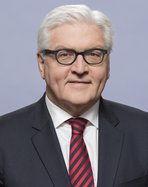European Russophobia and Europe’s Rejection of Peace: A Two-Century Failure
Europe has repeatedly rejected peace with Russia at moments when a negotiated settlement was available, and those rejections have proven profoundly self-defeating. Read more
 Frank-Walter Steinmeier
Frank-Walter Steinmeier
The harsh reality of the past year has created unprecedented challenges for Germany and its foreign policy. The crisis in Ukraine spiraled out of control, with Russia's annexation of Crimea, followed by military escalation in the eastern Donbas region, calling into question the post-1945 European order. And, though the measures agreed in Minsk earlier this month offer an opportunity to enter into a political process, other crises – for example, the Ebola epidemic in West Africa and the advance of ISIS – have presented new, urgent challenges.
Whether Germany should assume greater responsibility for seeking to resolve such issues is a hotly debated question, both inside and outside the country. During a year-long “Review 2014," experts, officials, and the wider public discussed challenges, priorities, and instruments of German foreign policy, and tried to define Germany's role in the world. At the end of the day, outcomes are always concrete. In some areas, we have been successful over the last year; in others, we can and want to do better.
Germany is widely appreciated for its commitment to promoting peaceful conflict resolution, the rule of law, and a sustainable economic model. Yet it is abundantly clear from the Review that our partners expect a more active – and even more robust – German foreign policy in the future. Expectations are high – perhaps too high at times. So it is up to Germany's people to answer the difficult questions: Where do our interests lie? How far do our responsibilities extend? What, in short, is the “DNA" of German foreign policy?
The basic tenets of Germany's foreign policy – close partnership with France within a united Europe and a strong transatlantic alliance in terms of both security and economic cooperation – have withstood the test of time, and will remain a cornerstone of our approach. But now we must address three key challenges: crisis management, the changing global order, and our position within Europe.
For starters, we must face the fact that globalization has made crises the rule, not the exception. Though globalization and digitization are driving rapid economic growth, they are also putting pressure on governments worldwide to meet citizens' rising expectations – even as they constrain in unprecedented ways governments' ability to act.
The article’s full-text is available on the website of Project Syndicate